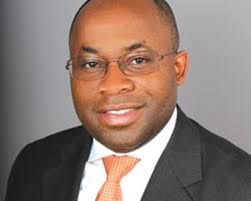Nigeria’s has invested more than $200 million in the United States bond market through the Sovereign Wealth Fund, SWF. The fund was given by the SWF to UBS, Credit Suisse and Goldman Sachs, to manage a fixed income portfolio. The investment, though relatively small, adds Nigeria to the small cadre of commodity-rich countries that over the past decade have become one of the most powerful forces in global financial markets through their sovereign wealth funds. Chief executive of the $1billion Nigerian Sovereign Investment Authority, NSIA, Uche Orji, said the fund gave UBS $50 million last week to invest in US Treasuries. A further $150 million is being transferred this week to Credit Suisse and Goldman Sachs to build a US corporate bond portfolio. Speaking to newsmen in Abuja, Orji, a former banker who was recruited to set up the fund last year further said, “This is a major milestone for us. ”Orji who had earlier in June said that he had delayed making any initial investments due to the volatility in global markets noted that he felt the bond market was now “fairly valued”. The first investment comes ahead of this week’s crucial meeting of the Federal Reserve. The US Central Bank is likely to start phasing out its bond buying programme that has kept interest rates at ultra-low levels. “There is more optimism now,” Mr Orji said.
The Nigeria sovereign wealth fund is the third largest in sub-Saharan Africa, after the $6.9 billion Botswana and $5 billion Angola funds, though tiny compared to those of oil producers such as Saudi Arabia, Norway and Abu Dhabi, which have more than $600 billion in assets each.Mr Orji acknowledged that new inflows were not guaranteed, but said that the seed capital was enough for now. “$1bn is not inconsequential,” he said. “Not many sovereign wealth funds have started out with that amount.” Under the investment policy approved by the NSIA earlier this year, the fund is split into three pools. The stabilisation fund has a 20 per cent share – the $200m handed over to banks this week. Capital preservation is the main aim, with the fund acting as a buffer against short-term economic instability. Mr. Orji said he hoped this fund would be running by the end of March 2014. But he expressed concern about rising valuations in the developed world stock markets. “We find quite a few asset classes, such as US equities, to be a bit rich at the moment,” he said. “We see more value in emerging markets.”










